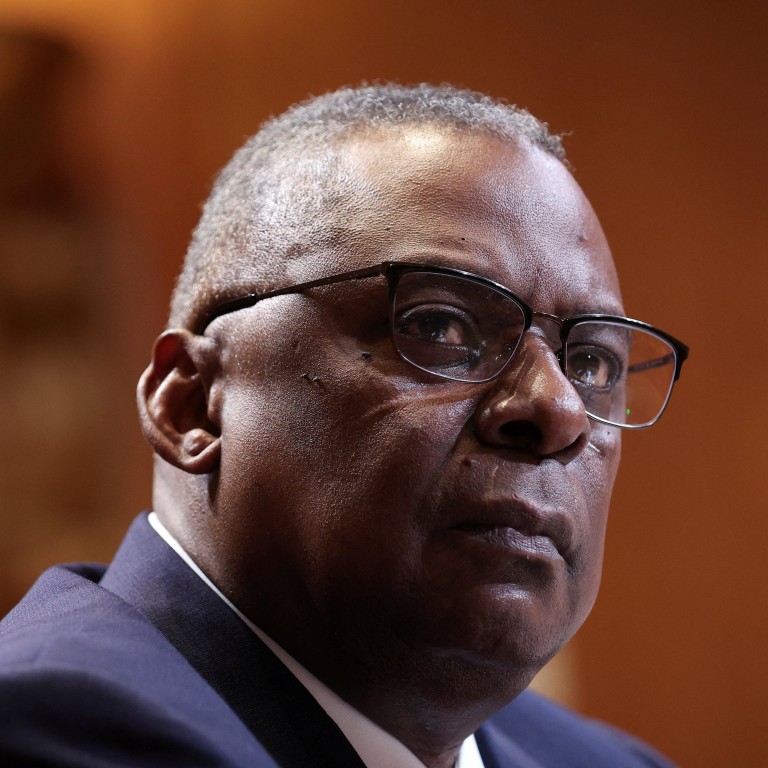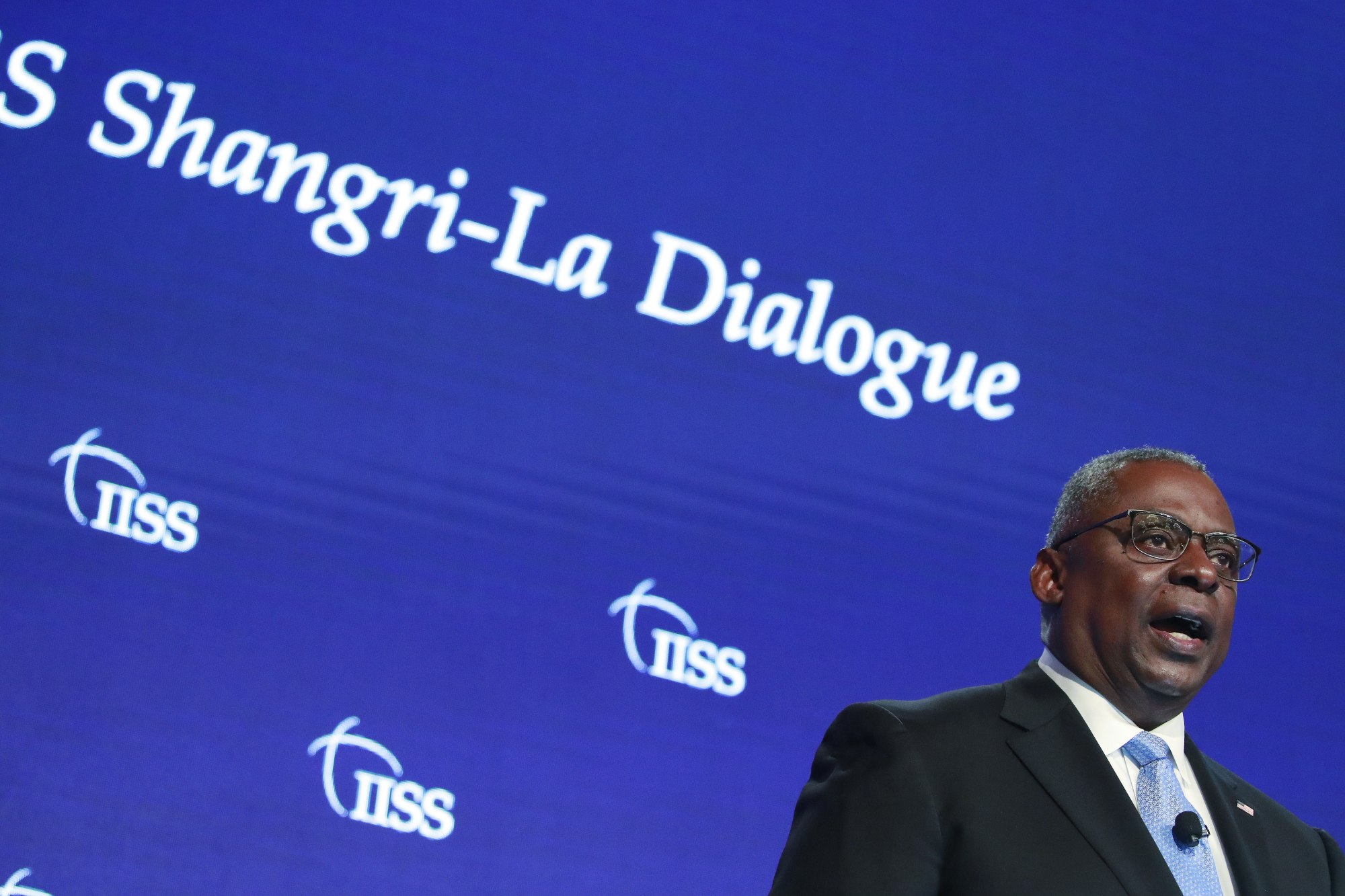
US defence chief Lloyd Austin says China is getting ‘more coercive’ in its territorial claims
- Washington will help Indo-Pacific allies ‘deter aggression’, he tells security summit in Singapore
- He says Russia’s invasion of Ukraine has ‘galvanised’ the world and undercut international order
US Defence Secretary Lloyd Austin told a key security summit on Saturday that Beijing is getting “more coercive” in its territorial claims and Washington is committed to helping its allies in the Indo-Pacific defend themselves.
“We seek a region free of aggression and bullying, and we seek a world that respects territorial integrity and political independence,” Austin said. “That’s especially important as the [People’s Republic of China] adopts a more coercive and aggressive approach to its territorial claims.”

“Now our friends and partners also know that and they understand that smaller countries have a right to peacefully resolve disputes with their larger neighbours,” Austin said. “And I’m here because the rules-based international order matters just as much in the Indo-Pacific as it does in Europe.”
Austin said there had been an “alarming” increase in unsafe and unprofessional encounters between Chinese militaries and those of other nations.
US-China fireworks, Kishida speech: key facts on the Shangri-La Dialogue
Australia has complained that a Chinese J-16 fighter jet performed dangerous manoeuvres close to its surveillance plane over the South China Sea in late May that it said could have endangered the crew’s safety.
Canada has also criticised the Chinese air force, saying they flew too close to Canadian patrol aircraft while they were on a mission to uphold UN sanctions against North Korea and accusing PLA aircraft of attempting to forcefully change their flight paths.
Austin said there had been a steady increase in “provocative and destabilising military activity near Taiwan”.
“That includes [Chinese military] aircraft flying near Taiwan in record numbers in recent months, and nearly on a daily basis,” he said.
He said the US was committed to its one-China policy and opposed unilateral change to the status quo of the Taiwan Strait, but also did not support Taiwan independence.
Western nations have also raised concerns about China’s military ambitions in the region after The Washington Post reported on Monday that China was building a naval base in Cambodia for PLA use, citing unnamed Western officials.
In his speech, Austin said the US had reserved a budget for its Indo-Pacific deterrence initiatives and would boost economic ties with the region.
The US and its partners would operate in waters and airspace allowed by international law, he said.
Austin said the 2023 defence budget included US$6.1 billion for the Pacific Deterrence Initiative, a series of investments to upgrade military information sharing, training and support, and to strengthen regional partnerships to counter China.
The Pentagon would also spend more on research into space and cyberspace technologies, pushing the R&D budget request to US$130 billion. Stealth aircraft, unmanned platforms, long-range precision fires and missile-countering lasers were among the new capabilities “to deter aggression even more surely”, he said.
But he stressed that Washington was not seeking conflict. “We do not seek confrontation or conflict. And we do not seek a new Cold War, an Asian Nato, or a region split into hostile blocs,” he said.


